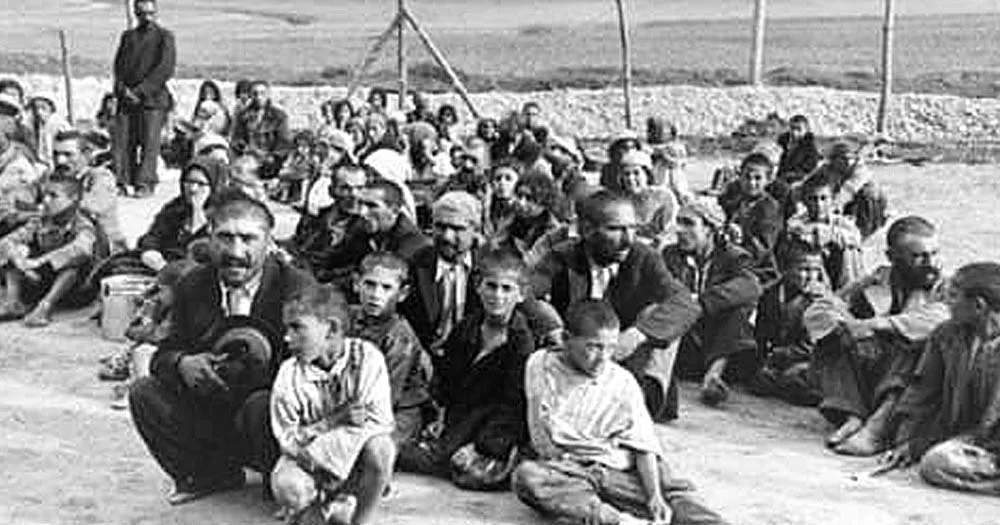Today, August 2, marks Roma Holocaust Memorial Day, where we recognise and remember the Roma lives that were lost during World War II. The Romani genocide committed by the Nazi regime is better known among Roma populations as Porajmos, meaning ‘the Devouring’.
An estimated half a million Sinti and Roma people were killed during the Holocaust, roughly 25% of the entire Roma population in 1944. At least 23,000 were imprisoned in Auschwitz concentration camps. Additionally, another 500,000 Roma people were displaced, had their identity papers destroyed or had to undergo sterilisation against their will.
On May 16, 1944, roughly 6,000 Roma barricaded themselves in their barracks in Auschwitz and fought back against their Nazi captors who were planning their execution. They successfully held off the Nazis until August 2, 1944, when the remaining 2,897 Roma people were killed in gas chambers at Auschwitz.
Despite the indescribable harm inflicted on Roma and Sinti people during this time, their experiences were largely ignored by the German government in 1981, and the community still experiences discrimination today.
Roma Holocaust Memorial Day was first marked on August 2, 2009, in memory of the victims of the Roma Holocaust. Every year on this day, one minute of silence is observed at the Holocaust memorial stone at the Council of Europe in Strasbourg in their honour.
Today marks Roma Holocaust Memorial Day.
Over 500,000 Roma and Sinti were killed by the Nazis and their collaborators, 50% of the slightly fewer than 1 million in Europe at the time. pic.twitter.com/8ofMTLH4mD
— Xavi Ruiz (@xruiztru) August 2, 2023
To mark this year’s European Roma Holocaust Memorial Day, Marija Pejčinović Burić, Council of Europe’s Secretary General, shared: “Today, we commemorate European Roma Holocaust Memorial Day and pay tribute to the 3,000 Roma – mainly women and children – who were ruthlessly murdered in the dark of the night at Auschwitz-Birkenau.
“We must never forget how hatred, exploitation and stigmatisation led to this mass killing 79 years ago today. Remembrance serves to restore dignity and justice to victims and to the community,” she added.
“The Council of Europe is committed to ensuring Roma inclusion and supporting its member states to establish and maintain safeguards for Roma communities.”
“The Council of Europe is committed to ensuring Roma inclusion and supporting its member states to establish and maintain safeguards for Roma communities.”
Secretary General @MarijaPBuric on European #RomaHolocaust Memorial
➡️ https://t.co/J2rXGSTrXQ#NeverForget pic.twitter.com/Kc0N0sf3VL
— Council of Europe (@coe) August 2, 2023
Teachings on the Holocaust to younger generations remain essential to ensure that these atrocities are never repeated. In 2018, the Irish Times reported that a group of young Irish Roma and Travellers travelled to Auschwitz and Krakow in Poland to commemorate the Roma Holocaust Memorial Day. It was the first time a group of Irish Travellers and Roma took part in the annual youth event.
Bianca Paun, 20, from Kildare said: “Roma call the Holocaust the ‘Porrajmos’, which means ‘the devouring’ in Romani language. There are many stories of Roma Holocaust victims that are still waiting to be told. We want to play our part in doing this.”
She added: “We have an opportunity to remember people of my community who suffered, to educate our younger generations and to make sure it doesn’t happen to anyone again.”
To mark #RomaGenocideMemorialDay #2ndAug @PaveePoint and @AnPostvox will hold a special viewing today of the tapestry ‘el holocausto’ at the GPO with a ceremony featuring testimonies from #Roma survivors of the Holocaust https://t.co/MH9w3qnavF pic.twitter.com/xoIC0XxukH
— Pavee Point (@PaveePoint) August 2, 2023
The planned effort by Nazi Germany and its World War II allies to commit genocide during the Holocaust era killed 11 million people. The largest population impacted were Jewish people, with 6 million lives lost, but the Nazis killed an additional 5 million people during the war because of their nationality, ethnicity, LGBTQ+ identity, disability or religion.
Roma people in Ireland and across Europe continue to experience racially motivated violence and discrimination today.
© 2023 GCN (Gay Community News). All rights reserved.
Support GCN
GCN is a free, vital resource for Ireland’s LGBTQ+ community since 1988.
GCN is a trading name of National LGBT Federation CLG, a registered charity - Charity Number: 20034580.
GCN relies on the generous support of the community and allies to sustain the crucial work that we do. Producing GCN is costly, and, in an industry which has been hugely impacted by rising costs, we need your support to help sustain and grow this vital resource.
Supporting GCN for as little as €1.99 per month will help us continue our work as Ireland’s free, independent LGBTQ+ media.

comments. Please sign in to comment.